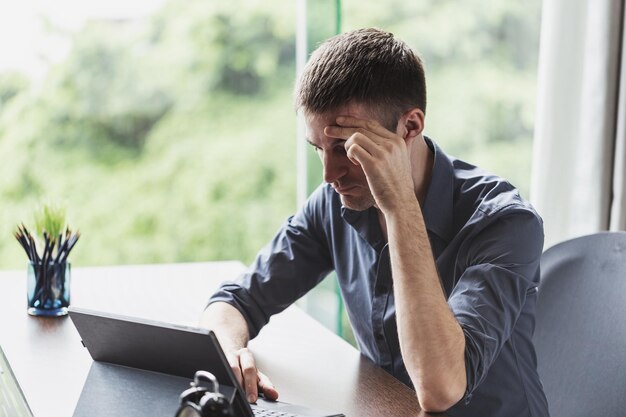Feeling Drained: Exploring the Link Between Anxiety and Fatigue
Does your mind race persistently, leaving you feeling like you're trudging through quicksand? You're not alone. Anxiety, an all-too-common experience, can often weave itself into the fabric of our daily lives, impacting various aspects of our well-being. One effect that's frequently noted yet not often discussed is fatigue. Delving into this complex relationship, we unravel how anxiety can indeed leave you exhausted.
Understanding Anxiety: What Is It Really?
Anxiety is more than just feeling stressed. It's a natural response to perceived threats, rooted in our evolutionary history. While this response was once crucial for survival, today's triggers are often less about immediate danger and more about daily pressures—work deadlines, financial stress, or relationship dynamics.
The Symptoms of Anxiety
Anxiety manifests not only in the mind but also in the body. Symptoms vary widely but can include:
- Restlessness or feeling on edge
- Rapid heartbeat or palpitations
- Sweating or trembling
- Difficulty concentrating
- Trouble sleeping
- Excessive worrying
The body's consistent activation under anxiety can directly contribute to tiredness, and here's how.
How Anxiety Leads to Fatigue
Feeling exhausted is a common complaint among those grappling with anxiety. Let's consider the physiological and psychological pathways leading to this fatigue.
The Physiology of Anxiety-Induced Fatigue
When anxiety hits, your body kicks into high gear via the fight-or-flight response. This process can be draining:
- Adrenaline Surge: Initially, anxiety triggers a release of adrenaline, preparing you for quick action. But prolonged exposure wears the body down, leaving you feeling depleted.
- Cortisol Release: This stress hormone stays elevated in chronic anxiety, disrupting sleep patterns and draining your energy bank.
Psychological Strain and Its Impact
The mental marathon of anxiety is exhausting. Constant worry over hypothetical outcomes ties up cognitive resources, leading to mental fatigue. This relentless mental turmoil can:
- Consume Attention: Making everyday tasks a challenge.
- Reduce Mental Stamina: Leaving you feeling worn out even after minimal mental exertion.
Breaking Down the Sleep-Anxiety Connection
Good sleep is crucial for restoring energy, but anxiety often wreaks havoc on your sleep patterns. Understanding this connection is key to addressing the exhaustion that accompanies anxiety.
Insomnia and Restless Nights
Insomnia is a frequent companion of anxiety:
- Difficulty Falling Asleep: Racing thoughts can keep you awake well past bedtime.
- Frequent Awakenings: You may find yourself frequently waking up throughout the night, unable to settle back into sleep.
- Restless Sleep: Even if you're sleeping, the mind may not get the restoration it needs, leaving you drained upon waking.
The Vicious Cycle
Anxiety disrupts sleep, leading to fatigue, which in turn heightens anxiety—a self-perpetuating cycle that's tough to break. Persistent sleep issues can further exacerbate anxious feelings, making it difficult to find the energy needed to engage in stress-relieving activities.
Practical Steps to Combat Anxiety-Induced Fatigue
While anxiety-induced fatigue can feel insurmountable, various strategies can help mitigate its effects and renew your energy.
Lifestyle Adjustments
Incorporating healthy habits into your lifestyle can have a positive effect on how you manage anxiety and associated tiredness:
- Regular Exercise: Physical activity increases endorphin levels, easing anxiety and promoting better sleep.
- Balanced Diet: Nutrient-dense foods fuel your body better, offering stability to both mind and body.
- Routine Sleep Schedule: Encourage your body's natural sleep-wake cycle by going to bed and waking up at the same times each day.
Mindfulness and Relaxation Techniques
Incorporating mind-body practices can sharply reduce anxiety levels and promote recovery:
- Deep Breathing: Helps calm the nervous system and decreases anxiety-induced physiological responses.
- Meditation and Yoga: These practices center the mind and detach you from swirling thoughts.
- Progressive Muscle Relaxation: This technique helps unwind tension from the body and aids in easing anxious feelings.
Seeking Professional Support
Don’t underestimate the power of professional support in navigating anxiety:
- Therapy Options: Cognitive Behavioral Therapy (CBT) is particularly effective for managing anxiety.
- Support Groups: Sharing experiences with others can provide comfort and context.
- Mindfulness Training: Structured programs can teach you long-term anxiety management skills.
Affirming Energy: Reclaiming Your Vitality
Recognizing the energy-draining effects of anxiety is the first step toward reclaiming your vitality. By understanding how anxiety affects your body and mind, you arm yourself with the knowledge to implement effective strategies for managing fatigue.
Building Resilience and Inner Strength
- Cultivate Gratitude: Focusing on positive aspects of life can shift your perspective and energy levels.
- Practice Self-Compassion: Be gentle with yourself, acknowledging that managing anxiety is a journey.
- Engage Socially: Maintain connections with friends and family to provide emotional support.
As you better manage anxiety and its tiredness, the path to feeling revitalized, and vibrant becomes clearer. Energy once sapped by relentless worry can be restored through conscious practice and patience. Though the journey is not without its challenges, remember that gaining insight into your mental health is a powerful step toward regaining control and experiencing a fuller, more energetic life.
Quick Takeaways and Tips for Managing Anxiety-Induced Fatigue
- 🧘 Practice Mindfulness: Incorporate meditation and breathing exercises to alleviate mental burdens.
- 🍏 Eat Balanced Meals: Nourish your body with a diet rich in nutrients to sustain energy levels.
- 🕰️ Maintain Routine: Stabilize sleep patterns with a consistent bedtime and wake time.
- 🏃 Exercise Regularly: Engage in physical activity to uplift mood and stamina.
- 🧑🤝🧑 Seek Support: Don’t hesitate to reach out for professional help or join support groups.
- 💤 Improve Sleep Hygiene: Reduce screen time before bed and create a calming pre-sleep routine.
- ✋ Self-Compassion: Approach your challenges with kindness and patience.
Taking these steps can help mitigate fatigue and empower you on your journey toward endurance and well-being.

